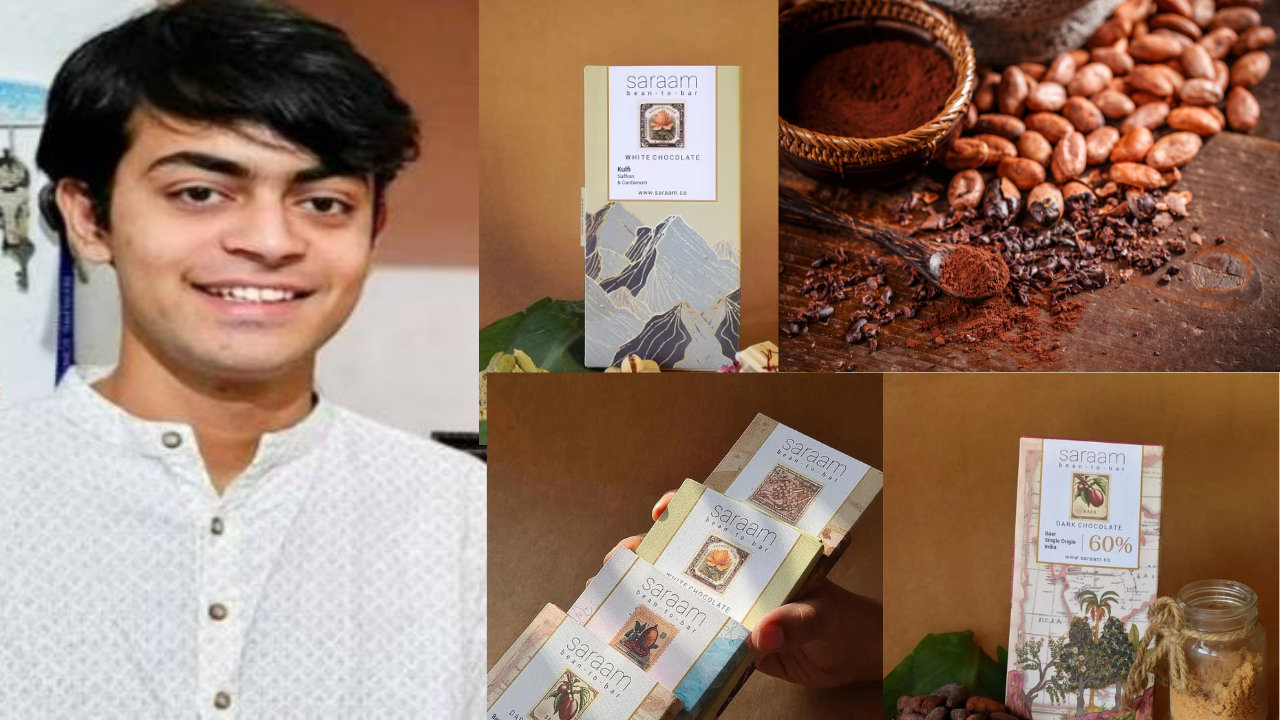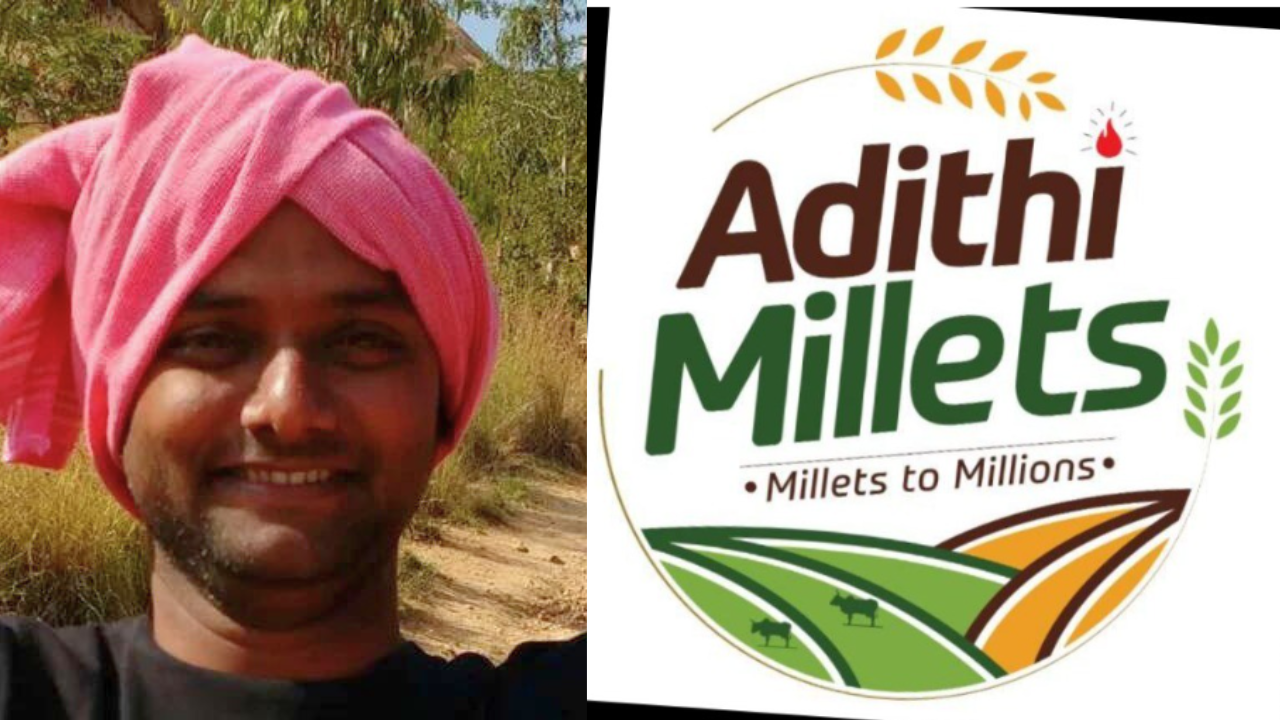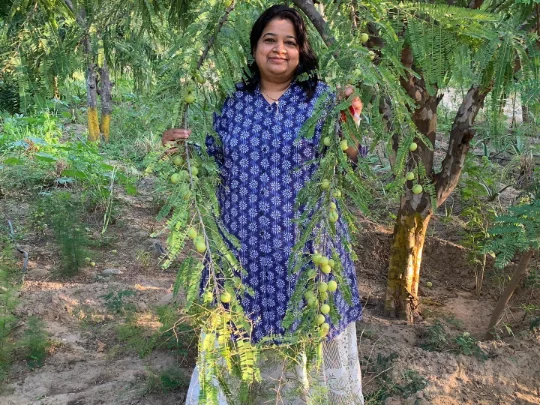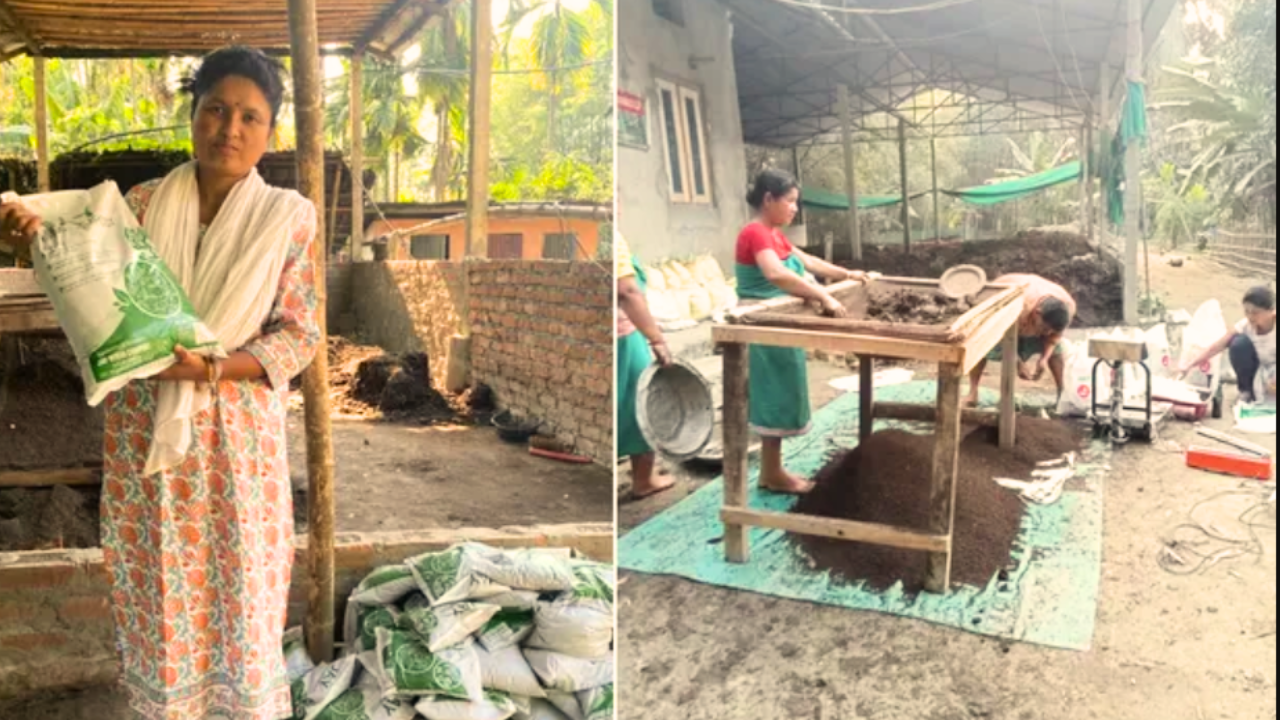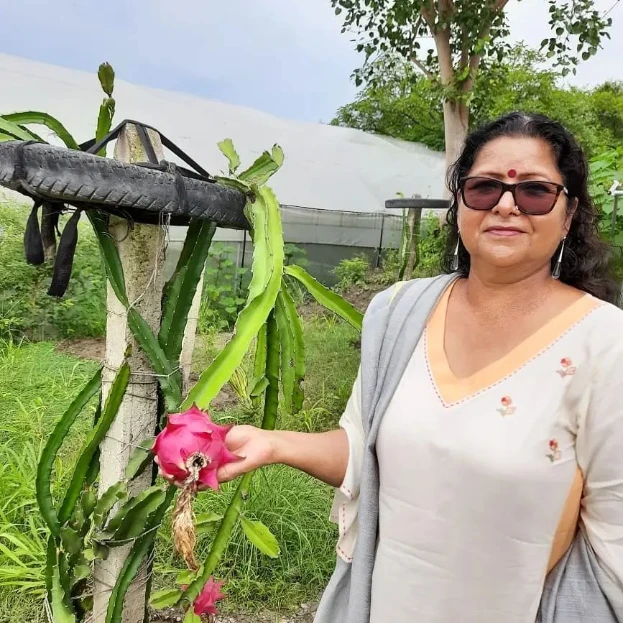You can often spot coconut trees in many South Indian states. These trees not only help keep the environment clean, but they also give us a special kind of fruit. This fruit has a lot of advantages – its oil is great for moisturizing our skin and hair, it adds flavor to our food, and its water is refreshing to drink.
What’s really cool about coconuts is that every part has a purpose. From the tough outer shell to the fibers around the fruit, everything has a use. A startup based in Bengaluru has figured out a clever way to use coconuts to help women and farmers. And they’re making a good amount of money too, about $5000 every month.
This startup, named Tengin, which means “coconut” in Kannada, is led by a 30-year-old named Madhu Kargund. He’s doing some really interesting things with coconuts – making virgin coconut oil, sweet barfi, soaps, candles, sugar, chips, and even useful items like dish scrubbers and crockery shells from the coconut parts.
Madhu says, “I grew up in a farming family, and I’ve seen how tough it can be for farmers when their crops fail or they don’t earn much money, especially with the changing climate. I’m trying to help them earn more money by turning their coconuts into a source of income.”
Creating a lucrative coconut farming business
Madhu was born and raised in Arsikere, a place in the Hassan district of Karnataka. During his childhood, he assisted his father with farming activities. He explains, “Being raised in an agricultural family, you personally observe the daily struggles confronted by farmers. Natural cultivation is becoming tough due to changing weather patterns and irregular rainfall. Farmers lack support to enhance their skills, and their lack of market knowledge leads to financial losses.”
Highlighting the problems faced by farmers, he explains, “Imagine if I start cultivating tomatoes in my field and get a good price. Then, all other villagers might follow suit, leading to an oversupply that reduces profits. Farmers lack the necessary knowledge and end up losing money.”
Madhu always wanted to tackle these issues, but his father preferred him to have a stable job. He comments, “Farmers don’t want their children to pursue farming due to the uncertainties and losses.”
Following the completion of his Master’s degree in Computer Applications, Madhu spent eight years employed as a software engineer. However, he couldn’t shake off his concern about not addressing the farming problems. He shares, “Even when I was an engineer, I couldn’t stop thinking about my true calling. I brainstormed ways to change the situation. Cutting out intermediaries and sourcing directly from farmers seemed the best way to boost earnings for them.”
By 2018, Madhu realized that a conventional office job wasn’t his passion. He knew he wanted to assist farmers, and he turned to his family’s expertise: coconuts. He had observed his father growing coconuts all his life. While still employed as an engineer, he began producing batches of virgin coconut oil, laying the foundation for his venture.
“It was in 2020 that I decided to fully commit to the business and leave my job,” he recalls.
Organic, eco-friendly, and zero-waste
When Madhu made the choice to leave his job, he didn’t receive the supportive response he had hoped for.
“My parents weren’t keen on me becoming a farmer; they wanted me to stick with my job. Farming is incredibly tough, and farmers often don’t earn enough money or receive the respect they deserve,” he explains.
Despite facing resistance from his family, Madhu was determined. In his village, he found a way to make farming more profitable by using a technique called zero-budget natural farming, which involves growing multiple crops together.
“Many villagers here usually focus on growing just one crop at a time. But with this method, you plant various crops in the same area. For example, you can grow areca nuts alongside coconut trees, and between them, have banana plants and tomatoes. This way, you get a variety of plants from the same piece of land,” he describes.
When Madhu conceived the idea for Tengin, he decided to involve women’s self-help groups (SHGs) in his village to create the products.
“We have a number of women’s groups in the village that I decided to collaborate with. They make different products, and we keep coming up with new ideas to make use of every part of the coconuts. We obtain coconuts from local farmers as well as some from other districts in Karnataka,” he states.
For the production of these goods, Madhu collaborates with more than 20 farmers from Goa and Karnataka as well as about eight women from SHGs in his area.
He adds, “We buy directly from the farmers, relieving them of worries about transportation costs or intermediaries.”
“We’re constantly innovating with our products. While we initially started with virgin coconut oil, we’ve expanded to include soaps, scrubs, and even kitchenware. For Diwali, we created coconut oil lamps, and for Raksha Bandhan, we crafted rakhis from coconut shells,” he adds.
“Usually, coconut shells are discarded, but I saw their potential as an eco-friendly alternative to plastic cups and mugs. From the coir, another byproduct, we made dishwashing scrubs. We also utilized the leftover coconut powder, which remains after oil extraction, to make coconut chocolate treats,” he explains, emphasizing that all their coconuts are grown naturally.
Vani Murthy, a customer of Tengin, shares, “Coconut products are deeply rooted in our South Indian culture and traditions. Coconut oil, which we use daily for cooking and personal care, holds many uses. Tengin is an authentic brand I turn to for these needs. Their products are fantastic, and I appreciate that they also support local livelihoods. They consistently introduce fascinating new coconut-based products.”
Madhu started by producing 150 ml of virgin coconut oil and has now sold over 500 liters. On average, the company makes a monthly revenue of $5000.
“For Tengin, and for me personally, it’s not just about selling products. We aim to shed light on the story behind our brand. It’s about sharing the hard work of the farmers. I engage with customers at flea markets, educating them about our products’ origins and how they’re made. When they purchase our items, they’re not just buying goods but also supporting farmers,” he emphasizes.
Looking ahead, Madhu envisions expanding and creating more innovative coconut-based products.
“We frequently concentrate on industries like IT when we discuss innovation or improving skills. There’s little discussion about improving farmers’ skills and introducing them to new technology. Many young people are leaving farming in search of better jobs, contributing to a migration crisis. Through my startup, I hope to make farming more profitable and appealing to the youth, encouraging them to continue this profession,” Madhu reflects on his journey thus far.


